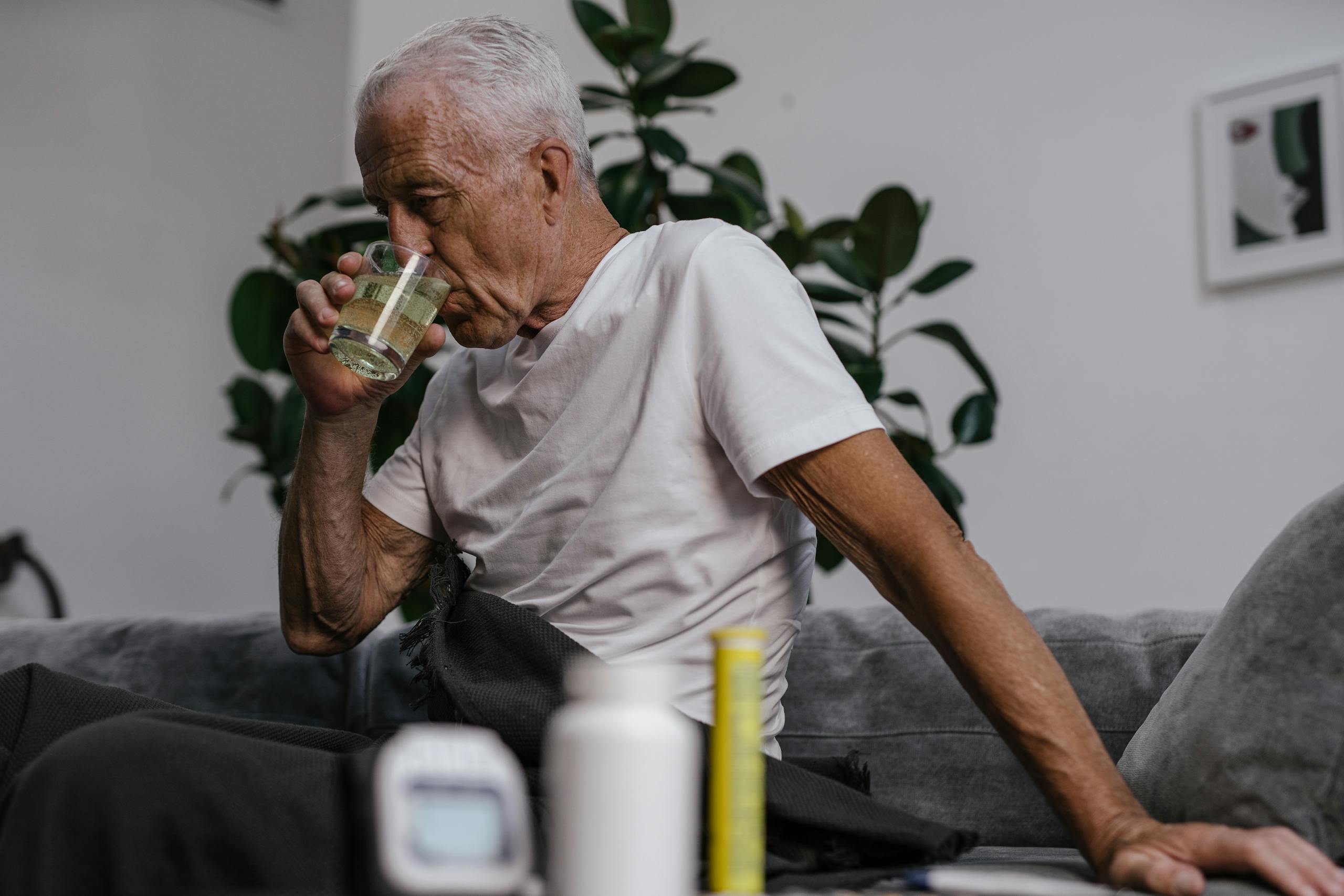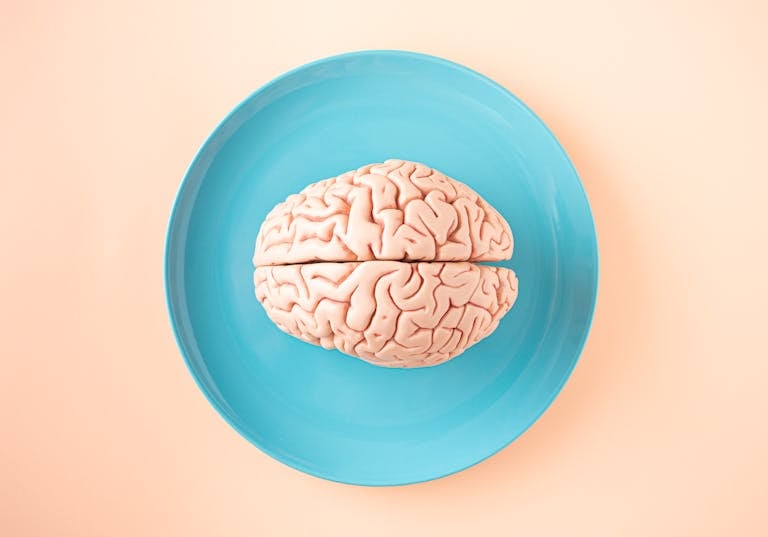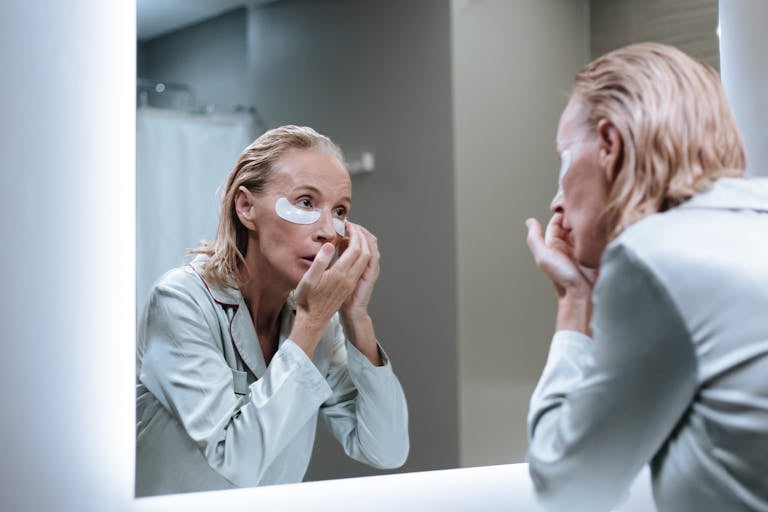5 Nutrient Deficiencies That Accelerate Aging
Aging is a natural part of life, but what if you’re unknowingly speeding up the clock?
The wrinkles on your face, the stiffness in your joints, and the sluggishness in your energy levels might not just be a sign of growing older—they could be a sign of what’s missing from your plate.
Yes, the foods we eat (or don’t eat) play a critical role in how gracefully we age. Certain nutrient deficiencies can silently accelerate the aging process, taking a toll on our skin, energy, and overall vitality.
But here’s the good news: by making a few simple dietary adjustments, you can slow down the hands of time and feel more vibrant than ever.
In this article, we’ll explore the key nutrients your body craves to stay youthful and the deficiencies that could be making you age faster than you’d like.
Let’s dive in and uncover the science behind aging, so you can take charge of your health and glow from the inside out.
The Role of Nutrients in Aging
Your body is like a finely tuned machine, and nutrients are its fuel. Without the right vitamins, minerals, and antioxidants, your body struggles to repair damage, fend off free radicals, and maintain healthy skin, hair, and muscles.
This imbalance can lead to premature signs of aging such as wrinkles, dry skin, brittle nails, and even cognitive decline.
Common Nutrient Deficiencies That Accelerate Aging
1. Vitamin D Deficiency
The Role of Vitamin D
Vitamin D is essential for healthy bones; it’s also a critical player for a strong immune system, mood regulation, and even skin health.
Low levels of vitamin D have been linked to increased inflammation—a known contributor to aging.
Chronic inflammation as a result can break down collagen in the skin, leading to sagging and wrinkles, and exacerbate conditions like arthritis and heart disease.
A lack of this “sunshine vitamin” can cause fatigue and weak bones, all of which contribute to premature aging.
The Signs of Deficiency
Fatigue, frequent illnesses, muscle weakness, and bone pain are common signs of vitamin D deficiency.
Over time, these symptoms can reduce your mobility and quality of life, making you feel much older than you are.
How to Replenish
- Spend 10–30 minutes in the sunlight daily, depending on your skin tone and location.
- Include foods rich in vitamin D, such as fatty fish, egg yolks, and fortified dairy or plant-based milk.
- Consider a vitamin D3 supplement if levels remain low, especially during winter months.
2. Vitamin C Deficiency
The Role of Vitamin C
Vitamin C is a powerhouse antioxidant that fights free radicals, unstable molecules that damage your skin, organs, and cells.
It also plays a pivotal role in collagen production, which keeps your skin firm and youthful.
Without enough vitamin C, your body struggles to repair itself, and signs of wear and tear become more visible.
The Signs of Deficiency
Symptoms include dry, rough skin, slow wound healing, frequent bruising, and a weakened immune system.
Chronically low levels can lead to more severe issues like scurvy, but even mild deficiencies can cause dull, sagging skin and fatigue.
How to Replenish
- Include vitamin C-rich foods like oranges, kiwis, strawberries, red bell peppers, and broccoli in your diet.
- Opt for a high-quality vitamin C serum to apply topically, enhancing skin brightness and reducing wrinkles.
3. Omega-3 Fatty Acid Deficiency
The Role of Omega-3s
These essential fatty acids are crucial for brain health, heart health, joint lubrication and reducing inflammation.
Omega-3s keep your skin hydrated and supple by maintaining its lipid barrier. A lack of omega-3s can lead to dry, flaky skin, poor memory and exacerbate inflammatory conditions like eczema or psoriasis.
The Signs of Deficiency
Memory problems, joint pain, dry skin, and mood disorders are signs of an omega-3 deficiency.
Long-term deficiency can increase your risk of chronic diseases like Alzheimer’s and cardiovascular issues.
How to Replenish
- Add foods like salmon, mackerel, walnuts, flaxseeds, and chia seeds to your meals.
- Consider a high-quality fish oil or algae-based supplement, especially if you don’t consume seafood regularly.
4. Zinc Deficiency
The Role of Zinc
Zinc is a trace mineral that plays a big role in cellular repair, wound healing, and immune function.
It’s also essential for maintaining your skin’s elasticity. Without enough zinc, your skin can lose its youthful bounce as well as you can become prone to infections and irritation.
The Signs of Deficiency
Hair loss, white spots on nails, slow wound healing, and frequent illnesses are tell-tale signs.
Zinc deficiency can also lead to acne-like breakouts and increased skin sensitivity, making you look and feel older.
How to Replenish
- Eat zinc-rich foods like pumpkin seeds, chickpeas, shellfish, lean meats, and eggs.
- If necessary, take a zinc supplement, but avoid over-supplementing as excess zinc can interfere with other minerals like copper.
5. Iron Deficiency
The Role of Iron
Iron is essential for producing hemoglobin, which carries oxygen throughout your body.
Without sufficient iron, your cells are deprived of the oxygen they need to function optimally.
This can lead to fatigue, pale skin, and thinning hair—common signs of aging. This can affect your energy levels and can make you appear older than you are.
The Signs of Deficiency
Symptoms include extreme tiredness, cold hands and feet, dizziness, and hair thinning. Prolonged deficiency can cause anemia, making you feel chronically weak and older than your years.
How to Replenish
- Eat iron-rich foods like spinach, lentils, tofu, red meat, and fortified cereals.
- Pair iron-rich foods with vitamin C sources to enhance absorption.
- Avoid consuming calcium-rich foods or tea/coffee with your iron intake, as these can inhibit absorption.
The Bigger Picture: A Holistic Approach to Aging Gracefully
While addressing individual nutrient deficiencies is vital, it’s equally important to adopt a well-rounded approach to healthy aging:
1. Diversify Your Diet: Focus on whole, minimally processed foods that provide a variety of nutrients.
Incorporate a variety of colorful fruits, vegetables, whole grains, lean proteins, and healthy fats into your meals.
2. Stay Active: Exercise supports circulation, muscle tone, and mental sharpness, all of which keep you feeling youthful.
3. Get Adequate Sleep: Sleep is when your body repairs itself, so don’t skimp on rest.
4. Manage Stress: Chronic stress depletes nutrients like magnesium and accelerates aging.
5. Get a Nutritional Check-Up
Visit your doctor to identify any deficiencies through blood tests and professional evaluation.
6. Consider Supplements
If dietary changes aren’t enough, supplements can help fill the gaps. Always consult with a healthcare provider before starting any new supplement.
7. Embrace a Holistic Lifestyle
Combine a nutrient-rich diet with regular exercise, good sleep hygiene, and stress management for a comprehensive approach to healthy aging.
8. Stay Hydrated
Water is a key player in maintaining skin elasticity, flushing out toxins, and keeping your energy levels stable.
Final Thoughts
Aging doesn’t have to mean a decline in vitality or appearance —just the right mix of nutrients and self-care.
By addressing these common nutrient deficiencies and fueling your body with what it needs, you can take control of the aging process and feel more youthful, radiant, and energized at any age.
Start small, stay consistent, and watch how your body responds to the nourishment it truly needs.
After all, the best investment you can make is in your own health and longevity.







